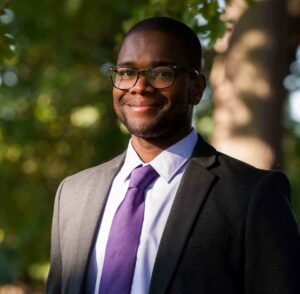Tackle microaggressions to transform services

Ishmael Beckford is the Chair of Council at the Chartered Society of Physiotherapy. Here, he writes about the impact of microaggressions on both staff and patients, and says that tackling the issue should be a priority for the NHS.
“But where are you really from?”
I doubt there can be many NHS staff of colour who have not been asked this question at some point.
The insinuation – whether conscious or not – is that our ethnicity means we cannot be from the UK, an alienating statement that tells us we don’t belong. It’s an example of what’s known as a microaggression, an often-overlooked form of discrimination and one that NHS system leaders could deliver a transformative effect on by tackling.
It won’t be easy.
The professional body and trade union that I chair, the Chartered Society of Physiotherapy, sought testimony from its members with marginalised protected characteristics, such as ethnicity, disability and sexual orientation, about their experiences of microaggressions – and the findings were stark, yet unsurprising.
Members spoke of regular incidents where they felt belittled, othered or insulted through the words or actions of someone in their workplace. Examples given by minority ethnic physiotherapy staff included repeatedly mispronounced names and being asked who the decision-maker was, despite it clearly being them – something I experience myself.
Members of our LGBTQIA+ community said they often heard the pejorative phrase, “that’s so gay”, and were told they “didn’t look gay”, while trans physio staff were asked for their “real name”. Physio staff with disabilities, meanwhile, spoke of being excluded from everyday activities and having their status questioned.
It seems highly unlikely that the experiences of physiotherapy staff differ from those of any other profession working in the NHS. And while this is, of course, a societal issue and not one exclusive to the NHS, the UK’s biggest employer has a responsibility to protect its staff – and its patients – from experiencing these behaviours in its settings.
More than a quarter of NHS workers are from an ethnic minority, while nearly 5 per cent have a disability and at least the same number identify as LGBTQIA+. Obviously there will be intersectionality across those numbers but that’s a hugely significant part of the workforce facing painful, damaging experiences in the workplace on a regular basis.
We also need to be honest and acknowledge that patients experience these behaviours when receiving NHS care. The evidence base demonstrating the poorer health outcomes among marginalised groups is well established. Those outcomes are shown to be made worse by communities experiencing poorer care due to racism, ableism, homophobia and transphobia.
Microaggressions form part of those experiences and will undoubtably deter some patients from seeking the care they need.
So, this is an issue facing staff and patients alike, and during a workforce crisis when retention is of such importance – and with record numbers of people waiting for care – the case for action on microaggressions is overwhelming.
But what should that action involve?
Education for staff and patients is important, clearly. There remains low awareness of the term microaggressions and, from the regularity that they occur, a limited understanding of their impact.
Our campaign includes posters and an animation that services may find helpful to display in public spaces and staffrooms. But crucially, our members also reported significant concerns about reporting microaggressions, fearing they wouldn’t be taken seriously and no action would be taken. There were also concerns about consequences for them of making a complaint and, dispiritingly, the idea that they happen so regularly that they aren’t worth reporting.
So, it is essential that systems, and specifically managers, create environments where people feel supported, heard and confident to report. These workplaces must be inclusive, culturally sensitive, and no longer somewhere microaggressions can go unchallenged. Our campaign includes training, guides and resources for managers to deliver that and encouragingly, after the first phase of the CSP’s campaign, members reported increased confidence to report microaggressions.
So change is possible. It just needs to be a priority.
Because don’t let the name fool you – microaggressions can have an enormous impact on the physical and mental health of those on the receiving end.
They chip away at you, bit by bit, day by day.
The constant challenge is how to navigate these experiences but still be yourself, because often a response to being exposed to these forms of prejudice is to dilute yourself, not be authentic and to conform to reduce the opportunity for people to point out that you’re different.
You start to see the world in a different light which can result in you feeling like you have to put armour on to go to work and this is a heavy weight to carry every day. Many people will never know that invisible armour exists for a lot of people.
That’s why it’s so important to bring the issue into the light and the enormous pressures facing the NHS cannot be used as an excuse for inaction.
Tackling microaggressions is not an add-on to easing those pressures.
It’s essential for delivering a workplace where staff feel valued and want to remain and where patients can feel confident they will receive equitable, quality care.
Access guides, resources and training for managers and staff at www.csp.org.uk/microaggressions.
